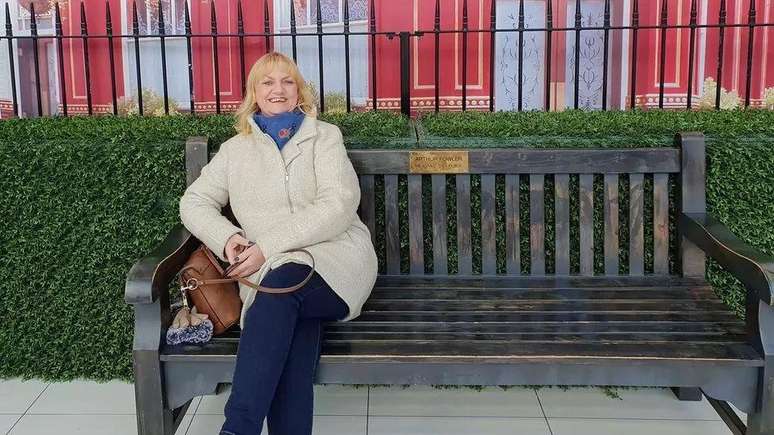Tens of thousands of women in England could benefit from a drug that helps prevent breast cancer. Anastrozole, used for many years to treat the disease, has now been approved as an option to prevent it.
Tens of thousands of women in England could benefit from a drug that helps prevent breast cancer. Anastrozole, used for many years to treat the disease, has now been approved as an option to prevent it.
Recent studies show that the drug can reduce the incidence of breast cancer by almost 50% in women who have already gone through menopause and who are at moderate or high risk of contracting the disease.
Health trusts in England said the authorization was “a huge step forward” for women with a significant family history of cancer.
It is estimated that in England alone 289,000 women could be eligible for the drug.
In Brazil the medicine, sold in pharmacies, is authorized for the treatment of the disease and not for preventive use.
Use could prevent 2,000 cases of breast cancer in England, according to the NHS, which could save the health service £15 million in treatment costs.
From now on, any woman concerned about a higher than normal risk of breast cancer can contact her GP, who can refer her to a specialist for a full risk assessment, taking into account her family history.
Anastrozole is not patented, which means that more than one company can produce it and the drug can be distributed at a fairly low price. In Brazil, generic drugs cost around R$30.
First recommended as a preventative option by the UK’s National Institute for Health and Care Excellence in 2017, the use of anastrozole in this way has now been authorized by the Medicines and Healthcare Products Regulatory Agency as part of the UK’s Medicines Repurposing Programme. United Kingdom.
Lesley-Ann Woodhams, 61, has just completed a five-year course of one Anastrozole tablet a day.
Making this decision was “an easy decision, because I watched my mother battle breast cancer,” she says.
“I could live without constantly worrying or thinking about what might happen if I developed breast cancer,” says Lesley-Ann.
“It was truly a gift. It gave me and my family peace of mind and, above all, a future to look forward to.”
Professor Peter Johnson, the NHS’s national clinical director for cancer, told BBC Radio 4’s Today program that the drug was a “very attractive” prospect for people at high risk of breast cancer.
He said scientific research indicated the drug was effective in protecting against the disease and had fewer side effects than tamoxifen, which was already available as a preventative treatment in the UK.
“People are particularly concerned about blood clots and even, in some cases, the development of endometrial cancer [quando tomam tamoxifeno]. Anastrozole doesn’t seem to have this effect, so it’s a more attractive idea,” Johnson says.
But there is still a risk of experiencing some side effects of the drug, which can be similar to menopause symptoms, such as hot flashes, nausea, arthritis, headaches and weakness.
The NHS has advised patients experiencing side effects to speak to their doctor or pharmacist.
Anastrozole works by blocking an enzyme called aromatase to reduce the hormone estrogen.
The treatment is administered as 1 mg tablets, once a day, for five years. The preventative effect lasts for years after a woman stops taking the drug, British authorities said.
“Extending the licensing of Anastrozole to cover its use as a risk-reducing treatment is a great step that will allow more eligible women with a significant family history of breast cancer to reduce their chance of developing the disease.” , said Delyth Morgan, chief executive of Breast Cancer. Now.
Breast cancer is the most common in England, with over 47,000 people diagnosed each year.
In Brazil, according to the National Cancer Institute (Inca), there are 73.6 thousand cases per year. Every year in Brazil, 18,000 deaths from breast cancer are expected.
Eight out of 10 of these cases are diagnosed in women over 50.

Women with a mutation in one of the BRCA genes are at risk of developing breast and ovarian cancer.
Most women in the UK have a 15% chance of developing the disease in their lifetime, but this increases significantly if they have the mutation.
For every 100 women who have a mutation in the BRCA1 gene:
- People between the ages of 65 and 85 will develop breast cancer in their lifetime (lifetime risk 65 to 85%)
- People between the ages of 40 and 63 will develop ovarian cancer (lifetime risk 40 to 63%)
For every 100 women who have a mutation in the BRCA2 gene:
- People between the ages of 40 and 85 will have breast cancer in their lifetime (lifetime risk 40 to 85%)
- 10 to 27 years old will develop ovarian cancer (lifetime risk 10 to 27%)
Women with BRCA mutations are also more likely to develop breast cancer at a younger age.
If the patient has a family history of cancer, he or she may undergo a genetic test to find out if he or she has inherited these genes.
UK Health Secretary Will Quince said he was “delighted” that the drug had been approved to “help prevent this cruel disease”.
“We have already seen the positive effect that anastrozole can have in treating the disease when it was detected in postmenopausal women and now we can use it to prevent its development in some women,” he added.
NHS chief executive Amanda Pritchard says the licensing of anastrozole “represents the first step in ensuring the risk reduction option is accessible to all who can benefit from it”.
Source: Terra
Ben Stock is a lifestyle journalist and author at Gossipify. He writes about topics such as health, wellness, travel, food and home decor. He provides practical advice and inspiration to improve well-being, keeps readers up to date with latest lifestyle news and trends, known for his engaging writing style, in-depth analysis and unique perspectives.








